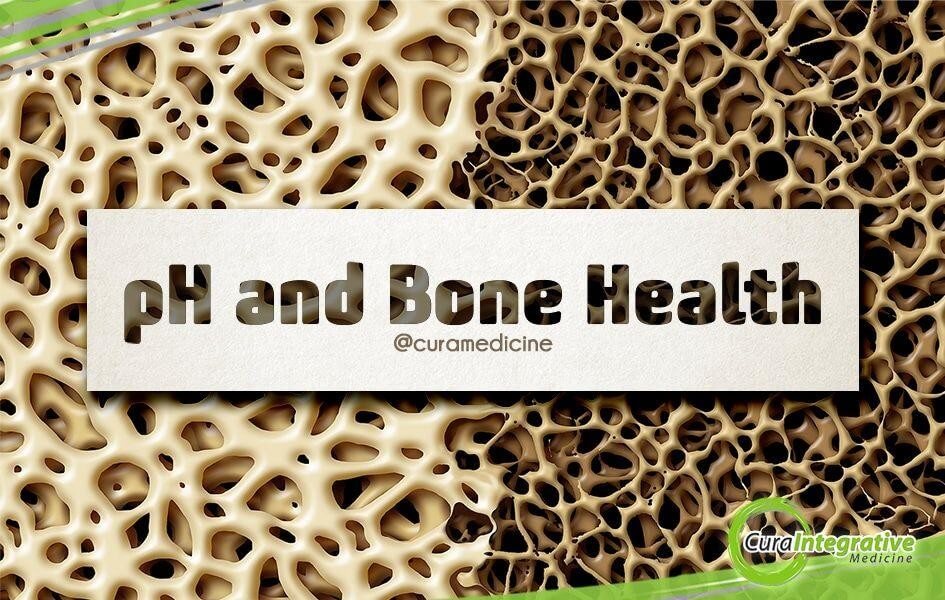Koji is a less known superfood found in a variety of macrobiotic foods. Containing Aspergillus oryzae, koji is used to make foods such as miso, amazaki and tamari. Read More…

pH and Bone Health
Posted 22 Jul '16
Did you know that the body doesn’t have a set pH level per se, but these levels differ depending on the body part, tissue, or fluid?
Some examples of various optimal pH levels in the body are:-
- gastric juice, having 2.0 to 3.0 pH;
- vaginal fluid, having 4.0 to 4.5 pH;
- urine, 4.0 to 8.0;
- bile and pancreatic fluid, 8.8;
- blood, 7.35 to 7.45;
- skin, 5.0 to 6.5;
- muscle, 6.56 to 7.09; and,
- bone, 7.0 to 7.4.
These tissue levels vary in pH because each tissue has a different function. For example, bile and pancreatic fluid has high levels of pH in order to aid in digestion by neutralising the stomach acid.
For optimal health it is important that the pH levels are within a health “normal” range. If not, even a 0.01 increase or decrease from the normal range, would mean that there is something wrong, causing that part not to work properly. If the pH levels, also referred to by scientists as hydrogen ions, drastically increase, it will result to chronic metabolic acidosis. The causes of prolonged acidosis are poor diet, heavy metal toxicity, reduced kidney function, and/or reduced respiratory functions. It is most likely linked to diabetes, endocrine alterations, muscle wasting, cancer and metabolic syndrome.
What happens if the bone’s pH levels are out of balance?
When there is an increase in the hydrogen ions, it could lead to deleterious effects in the body. Alkalising minerals are withdrawn from the bone, causing bone loss, and an increased risk of having osteoporosis later in life. In order to treat and support bone health, acidic loads must be reduced and prevented from increasing by taking bone supporting nutrients.
In 2008, about 3.4% of the Australian population were medically diagnosed to have osteoporosis. 84% of which are aged 55 and above. It is known that osteoporosis is underdiagnosed and most certainly 3.4% is an underestimation.
The steady reduction in bone mass that is related to osteoporosis is caused by an array of factors. The number one factor, which causes the overall pH of the body as mentioned earlier, is poor diet. Low intake of nutrients – calcium and vitamin D mostly – that are important for bone health early in life, from childhood, through adulthood, and into old age, can lead to hugely reduced peak bone mass, threatening the bone’s integrity and strength. Other causes include environmental and lifestyle factors.
Normally, osteoblast activity is at its peak, and the transportation of calcium and phosphate is at its optimum function. But when pH is decreased, mineralisation of bone significantly decline. With a drop in pH by 0.1, these activities are completely halted.
Hypercalcaemia is a direct result of bone resorption. It is what happens when calcium in the blood is increased, and is associated with cardiovascular, muscular, and nervous system complications. In order to prevent complications, these excess calcium must be excreted through the kidneys. Hypercalcaemia inhibits the secretion of parathyroid hormone, thus reduces vitamin D activation and calcium reabsorption. The body fails to reabsorb the lost calcium from the bones. This leads to bone mass and strength reduction. Thus, even if calcium intake is increased, calcium absorption or bone mineralisation is not improved if the environment is acidic.
In order to correct this, alkalising minerals must be incorporated in the diet to provide sufficient buffers. If the pH is balanced, absorption of calcium and the activation of vitamin D remains normal, and will help replenish bone loss and remineralisation, ensuring healthy bones in the future.





